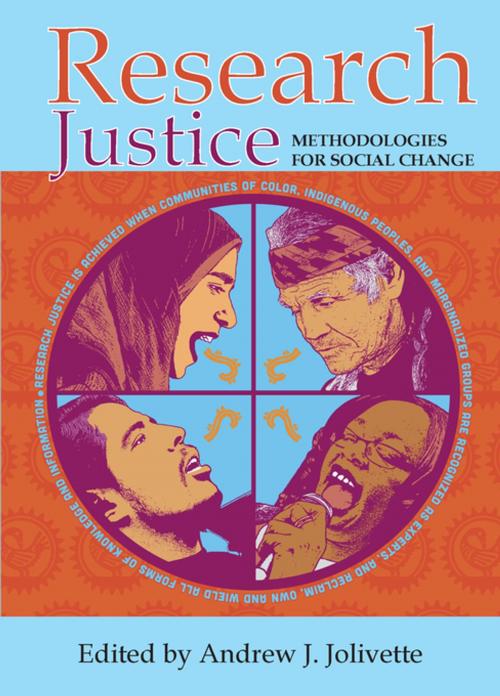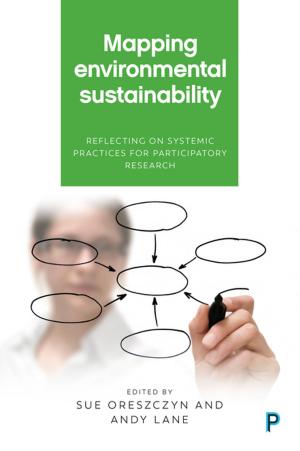Research Justice
Methodologies for social change
Nonfiction, Social & Cultural Studies, Social Science| Author: | ISBN: | 9781447324652 | |
| Publisher: | Policy Press | Publication: | July 22, 2015 |
| Imprint: | Policy Press | Language: | English |
| Author: | |
| ISBN: | 9781447324652 |
| Publisher: | Policy Press |
| Publication: | July 22, 2015 |
| Imprint: | Policy Press |
| Language: | English |
Research Justice (RJ) is a strategic framework and methodological intervention that seeks to transform structural inequities in research. Research Justice: Methodologies for Social Change builds upon the methodological frameworks developed by the national non-profit organization, DataCenter Research for Justice and is the first book to take a radical approach to socially just, community centred research. Challenging traditional models for conducting social science research within marginalized populations, it examines the relationships and intersections between research, knowledge construction, and political power/legitimacy in society. Presenting a new and highly innovative concept of Collective Ceremonial Research Responsiveness, it envisions equal political power and legitimacy for different forms of knowledge including the cultural, spiritual and experiential. The book examines how the co-existence of these various forms of knowledge can lead to greater equality in public policies and laws that rely on data and research to produce social change. Offering a much-needed analysis of the intersections between Research Methods, Public Policy, Cultural Studies, Anthropology, and Sociology, this unique book will be of wide interest to researchers and students in a variety of disciplines
Research Justice (RJ) is a strategic framework and methodological intervention that seeks to transform structural inequities in research. Research Justice: Methodologies for Social Change builds upon the methodological frameworks developed by the national non-profit organization, DataCenter Research for Justice and is the first book to take a radical approach to socially just, community centred research. Challenging traditional models for conducting social science research within marginalized populations, it examines the relationships and intersections between research, knowledge construction, and political power/legitimacy in society. Presenting a new and highly innovative concept of Collective Ceremonial Research Responsiveness, it envisions equal political power and legitimacy for different forms of knowledge including the cultural, spiritual and experiential. The book examines how the co-existence of these various forms of knowledge can lead to greater equality in public policies and laws that rely on data and research to produce social change. Offering a much-needed analysis of the intersections between Research Methods, Public Policy, Cultural Studies, Anthropology, and Sociology, this unique book will be of wide interest to researchers and students in a variety of disciplines















